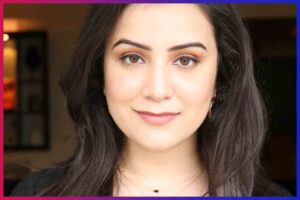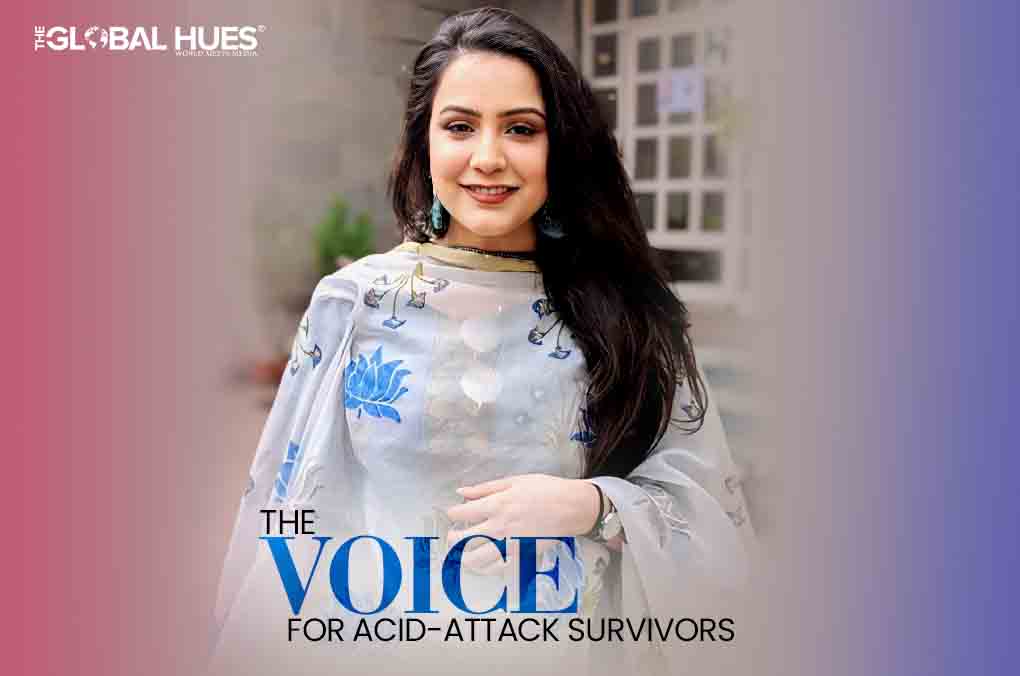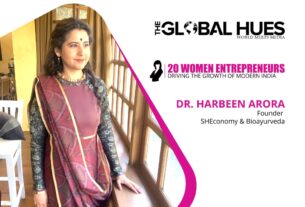Mahatma Gandhi once said, ‘Be the change that you wish to see in the world.’ This wisdom takes us to the story of Ria Sharma who transitioned from a fashion student to a leading social activist when she stumbled upon a photo of an acid attack survivor. When she returned to India from England, she saw their plight and cemented her decision to help them which led to the inception of her NGO, ‘Make Love Not Scars.’
In her own words, Ria tells us more about her NGO and how it is making a difference in the lives of the acid-attack survivors.
What led to the inception of the ‘Make Love Not Scars’? In what capacity is the NGO working today?
I was studying Fashion at the Leeds College of Art in the UK. In my third year, we had the flexibility to explore subjects that interested us. I was inspired by the women’s movement happening post the Nirbhaya gang rape. I decided to explore more and become a part of it in any capacity.
After seeing a picture of an acid victim, I started researching it. I went to my professor and told her that I stumbled across the picture of an acid attack survivor, and I wanted to explore this, but it is not fashion. She was very supportive and said that fashion is the first way that people view you, and the acid attack becomes a part of someone’s identity and the way someone views them and the stigma around it. Armed with a borrowed video camera, I returned to India to create a documentary on acid attack survivors.
I came to India and met different survivors. While meeting various survivors, the gravity of the issue struck me when I met a woman in a government hospital’s burns unit. When the counsellor told me that many of these women die because they don’t have access to proper medication, the idea of shooting a documentary on their plight didn’t sit well with me. I understood that my documentary alone wouldn’t bring immediate change for acid attack survivors. That’s when I decided not to return to the U.K. and called my Professor for online check-ins. One thing led to another and I laid the foundation of ‘Make Love Not Scars.’
However, my lack of NGO experience made me an easy target for ageism and sexism. Whenever I went to meet doctors and tried to talk to them to subsidise medical expenses for the survivors, they wouldn’t take me seriously. Overcoming this, I shifted to phone meetings to ensure my case was taken seriously. If they didn’t see me, they would not walk over me. We started getting funds. Publicity further enhanced our credibility, which helped in our overall aim of helping the survivors.
Make Love Not Scars, founded in 2014, is an NGO that works on all aspects of rehabilitation for acid attack survivors pan-India. We provide life-saving treatments and fund specialised procedures to save vision. We also help them obtain government compensation and fight for justice.
In a bid to stop generational trauma, we have also funded the education of small children whose mothers fell victim to acid attacks, especially during the time of COVID. Currently, we are funding the education of fourteen children. We also provide a monthly ration stipend to ease their financial burdens and focus on their recovery. We also provide them with skills and vocational training and help them resume interrupted studies and find employment opportunities.
How has the NGO made difference in the lives of acid-attack survivors?
To give an example, one of the acid-attack survivors that we helped was Anju. She was from Mathura. She was attacked by her husband in front of her children. In a moment of resilience, her two little boys sought help, dragged her out of the house and took her to the hospital. The severity of the burns left her face attached to her neck, she couldn’t look up or sideways. Over the past three years, with the help of medical intervention, she has regained her mobility.
We run a rehabilitation centre for acid-attack survivors where they can recover from their procedures and use it as a halfway home, to escape their abusive past and rebuild their lives.
Anju, during her time at the centre, worked and saved funds, enabling her to rent a house within six months. We funded the education of her two sons, alleviating the burdens that might have hindered Anju’s recovery.
Does the NGO also help burn survivors? How are you managing and sourcing the funds for your organization’s activities and initiatives?
The bylaws of our NGO state that we cannot help those victims whose wounds are accidental or self-inflicted. We work in the domain of gender-based violence that comes under domestic violence. Initially, some burn victims hesitated to seek help due to family pressure, labelling their injuries as accidents. But in the last two years, we’ve expanded to support burn survivors, especially those harmed by their in-laws.
As far as the funding is concerned, securing funding is a challenge, even though we have been in the field for ten years. Although we had received some great funding, some reputed companies
provide tied-up funding, which cannot be used during emergencies. Moreover, we rely on crowd-funding and have a few corporate funders as well. Unfortunately, many corporations tend to give funds to projects with potential future profits.

Message From Ria Sharma
When you meet someone, greet them with a smile. It is a small gesture and an act of kindness that makes someone’s day better.
Read More Stories:
- Alaknanda Das: The Kathak Genius Who Danced Through Cancer
- Deepa Malik: A Woman With Limitless Spirits
- Aruna Desai: Embracing Motherhood Like No Other
- Ekta Viiveck Verma: The Catalyst For Change In Gender-Based Violence
- Deepika Mhatre: The House-Maid Turned Comedian




